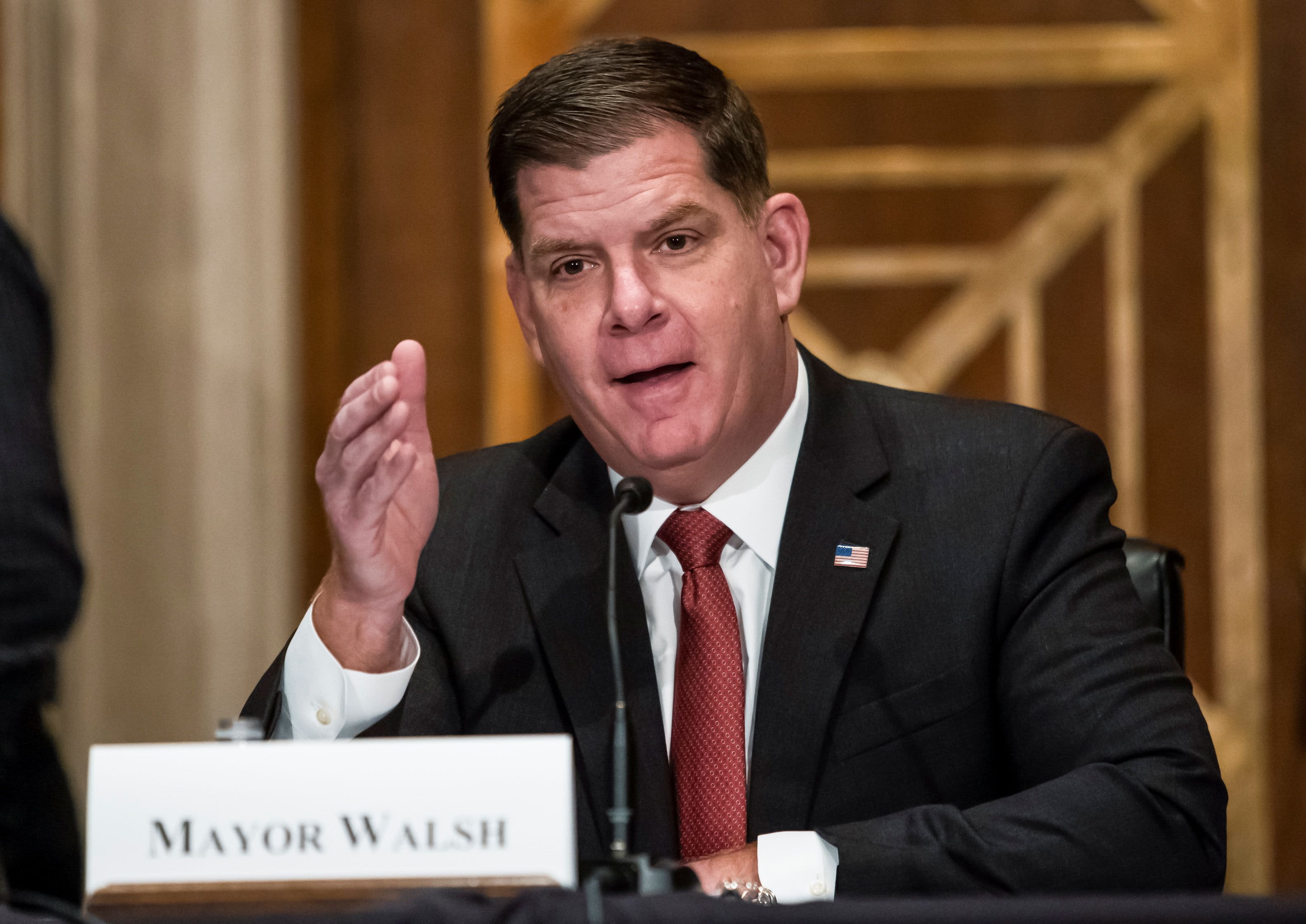Labor Secretary Martin Walsh said Friday that the Covid-19 pandemic is still weighing on jobs but projected optimism about recovery of the U.S. economy as vaccinations continue, saying that “we are starting to see the confidence come back.”
Walsh’s comments on CNBC’s “Squawk on the Street” came shortly after the Labor Department released a disappointing April jobs report, showing that nonfarm payrolls grew by a less-than-expected 266,000. Analysts had been expecting more than 1 million new jobs.
“Under normal circumstances — and certainly we are not living in normal circumstances — a 266,000 job gain a month is a good number,” Walsh said. “Unfortunately, we are still in the midst of a pandemic.”
“If you look back on the last three months, the United States economy has added 500,000 new jobs per month as compared to the previous three months where it was 60,000. So we are definitely going in the right direction but we still have a ways to go, there’s no question about it. We are still dealing with a pandemic,” Walsh added.
Walsh rejected arguments made by Republican lawmakers and business groups that pandemic-related federal unemployment benefits are encouraging potential workers to stay on the sidelines.
“I still think we need unemployment, obviously, we still have millions of Americans out of work. Many of those Americans don’t have opportunities at this moment,” Walsh said. “I know we are making a correlation between open jobs and people who are unemployed, but it’s not a fair correlation.”
Walsh pointed to data from the jobs report showing that more Americans looked for work in April than in previous months.
“I think as we continue to move forward here, hopefully in the coming months we are going to see lots of those Americans who are looking for jobs, finding jobs, and I’ll be able to stand in front of this camera and talk about the great gains we’ve had,” Walsh said. “But I still think 266,000 jobs this month is a good number.”
Shortly after the jobs report was released, the Chamber of Commerce put out a statement calling for an end to the $300 per week unemployment supplement. Neil Bradley, an executive vice president at the group, said the “disappointing jobs report makes it clear that paying people not to work is dampening what should be a stronger jobs market.”
Walsh, a Democrat and the former mayor of Boston, said that cutting the unemployment boost was a nonstarter.
“There are millions of Americans that have been impacted by the coronavirus that lost their job, some of their work is not coming back,” he said. “We have lost restaurants. We have lost businesses. I wouldn’t say we are in the midst of pandemic … but we are still living and dealing with the pandemic, and as we continue to move forward here we will continue to recover.”
Among the barriers that remain for potential workers, Walsh said, are lack of child care options and schools that remain closed.
“Those are two barriers right now in my opinion that are keeping people out of the work force as well, because their children are at home, learning remotely, or their child care facility is not open,” Walsh said. “There have been investments made by the president in those areas but we need to continue to make those investments so that people feel — know — they can go back to work.”
Walsh said that there are other reasons why Americans haven’t returned to work at the level that analysts expected, but that it could not be reduced to a single explanation.
“It’s not a simple answer,” he said.
